20 Habits to Save Food From Waste
Abundance often breeds waste. Adopt these 20 habits and take steps to reduce food waste and get the most from your grocery dollars.
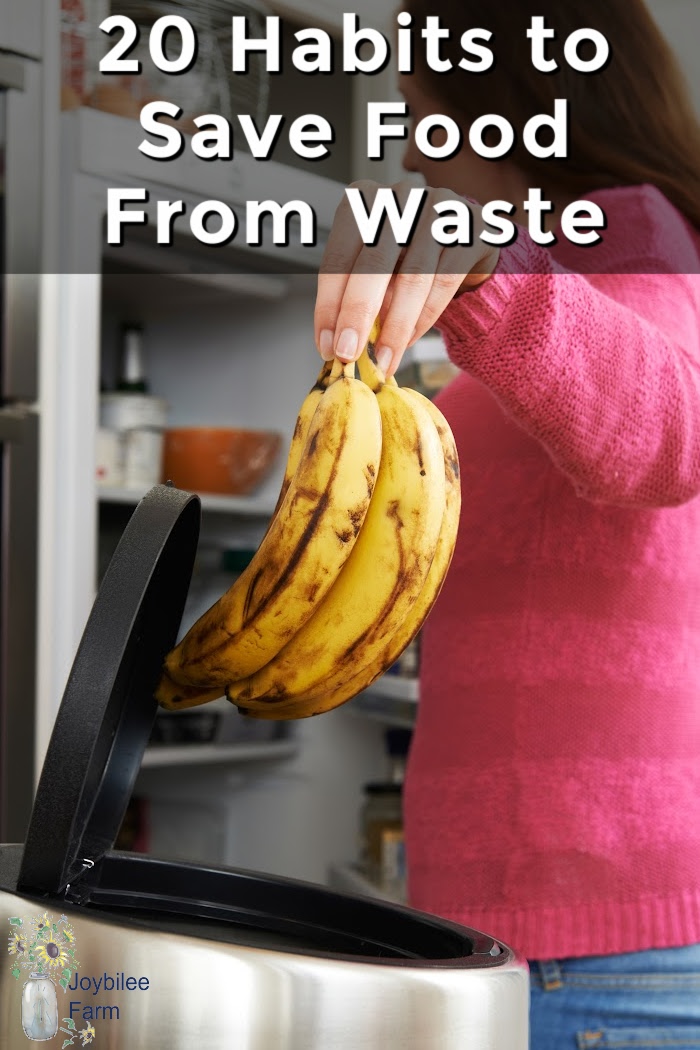
Have you noticed that the more abundance we have the more gets wasted? The more weeds in our gardens, the fewer weeds we harvest for food and medicine. The more food our garden produces the less we save for winter.
There is a connection
Wasteful people waste people. The more food we have in the grocery store, the more food ends up in the dumpster outside. The more food we bring home from the grocery store, the more food that gets dumped from our freezers at the end of the season. And the more people on this planet, the more people think that it’s ok to kill babies or discard other people, especially people that don’t think the same way, eat the same things, sing the same songs, buy the same toys, or dress the same way, as we do.
It occurred to me that there is a connection between our waste of food and our devaluing of people. And as we entertain thoughts that devalue people, we also devalue ourselves. By turning our eyes away from our own wastefulness, of both food and resources, we turn our eyes away from our own intrinsic value. We become less human.
My eldest son drives a trash compacter in Vancouver, picking up cardboard waste. Every day he sees discarded people, in the alleys, near the overflowing trash bins. Once he tipped a bin into his truck and had a surprise. The trash bin had a sleeping person inside. Thankfully, he didn’t start up the compacter before he heard the banging in the back of his truck.
It was a wake-up call to the guy sleeping in the trash bin, and for the owner of the bin that didn’t put the lock on, and to my son, who had to call 911 and spend 2 hours of his shift waiting for police and rescue personnel. People aren’t trash. Food isn’t trash. The more we waste the more expendable people become. It’s not that abundance is bad. It’s the habits we form around abundance that need a new look.
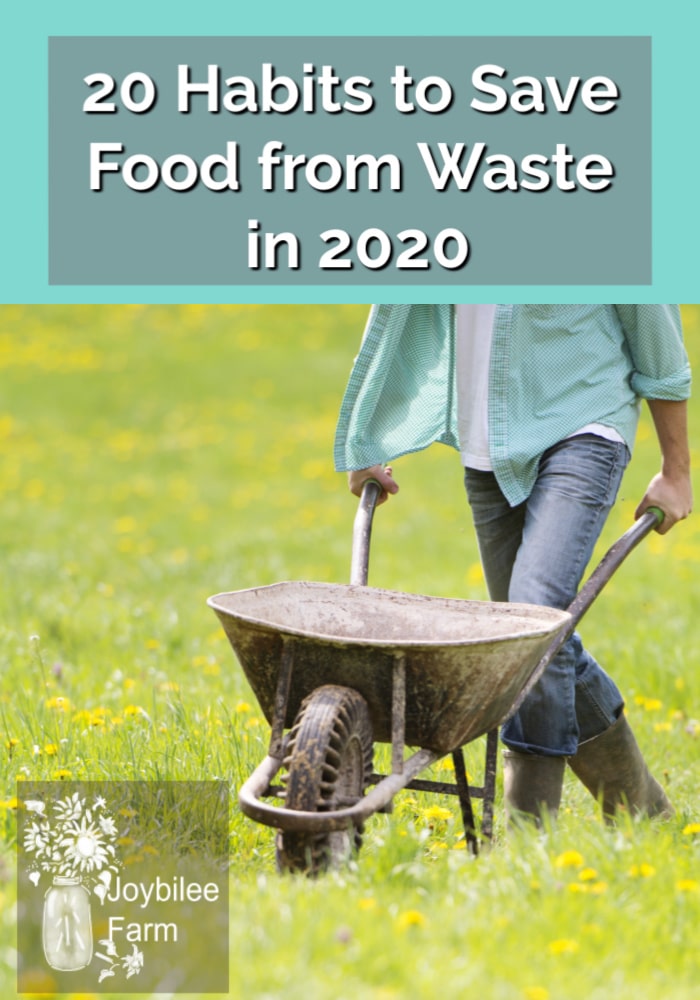
Dealing with your household waste
As homesteaders, we must deal with our own waste. Rural dwellers don’t have the luxury of putting a lid on their trash and having someone else cart it away. We must work through the ethics, economics and pragmatism of dealing with our own waste.
Food waste, garden waste, soil erosion, seed waste, paper and cardboard waste, wood waste, animal waste, fabric and clothing waste, manure waste, wasted hay and straw, wasted energy. The goal of the homesteader is to stop the bleed. Instead of devaluing waste, homesteaders get to value it – to see it for the resource that it actually is. Those who make use of the things that society deems waste and to bring good, wholesome, productivity and abundance out of them, begin to value themselves and their fellows more highly.
Industrial agriculture cannot do this. Industrial food systems cannot do this. These are calibrated to run like a well-oiled machine with minimum inputs and maximum profit. Waste management is factored into the bottom line. Dealing with anything that isn’t uniform decreases efficiency, which impacts profit. And the result is waste. A culture that values materialistic efficiency doesn’t value human inefficiencies. It takes a human to draw out the value in what others deem as waste.
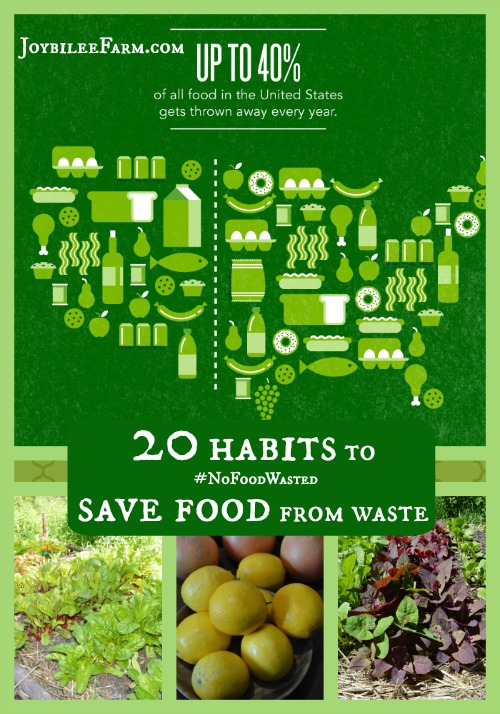
Don’t waste food
In this article, I’ll bring you tips for stopping food waste in your own home. As homesteaders, I’d like to encourage you to think beyond the waste of food, to the waste of all the resources and abundance that you’ve been given. How can you place more value on the things that you consider waste right now? Can you reframe your thinking about the things that you currently discard? Could you change 1 habit that would result in a decrease in food waste on your homestead?
- Roughly one-third of the food produced in the world for human consumption every year — approximately 1.3 billion tonnes — gets lost or wasted.
- The average family wastes $2,275 on food that is never eaten. Each person in the average family wastes 244 lbs of food annually.
- Fruits and vegetables, plus roots and tubers have the highest wastage rates of any food. [source]
We need Government regulations to change
On the homestead, some of the waste is because of government regulations for on-farm food sales. Here in BC meat can’t be sold to the consumer unless it is government inspected. But the inspection service is only available for lamb in the spring. In the Fall the cattlemen take up all available spots on the docket for meat inspection. But, lamb is ready for the freezer in September and October when there are no inspection services available in our area.
In the meantime, our grocery stores are full of Australian lamb. Local lamb is impossible to find at the market. And if you call a shepherd and ask, he can’t sell it to you because it hasn’t been government inspected. This year we bred our ewes as late as possible, hoping to bring the lambs to market size in March instead of September.
Milk is another food that is government-regulated to the point of insanity. Raw milk is regularly wasted or fed to livestock due to the prohibitions against selling or giving away raw milk. I make cheese with the excess milk here. My friend, Connie dehydrates her extra cheese and then pops it in her trail mix. (What a good idea, Connie. I am going to do that, too.)
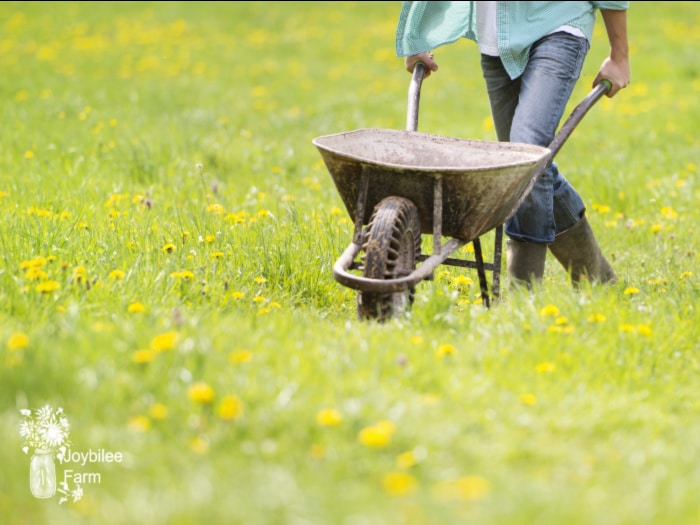
Grassroots changes we can do right now:
What to do with food to reduce waste. For food that’s still good to eat:
- Make vegetable broth
- Make bone broth
- Dehydrate leftovers for DIY soup mixes
- Make croutons with leftover bread before it goes moldy
- Make bread crumbs with leftover bread before it goes moldy
- Make pizza with leftover food.
- Ferment the vegetables before they rot.
- Dry the last bits of celery, parsley, onions, garlic, and ginger before they wilt.
- Keep fresh herbs and lettuce in a glass of water to keep them fresh longer. Change the water daily.
- Dry your juicer pulp, powder it and add it to bread, pizza crust, crackers, soup, and even cheesecake, for flavour and fibre.
No Food Wasted: For food that is garden waste
- Eat your weeds in salads
- Dehydrate weeds for super green powder
- Juice your weeds with your veggie juice
- Donate to a local food pantry.
Recycle Food waste that can’t be eaten like coffee grounds, teabags, peels, spent whey from cheese making, etc.
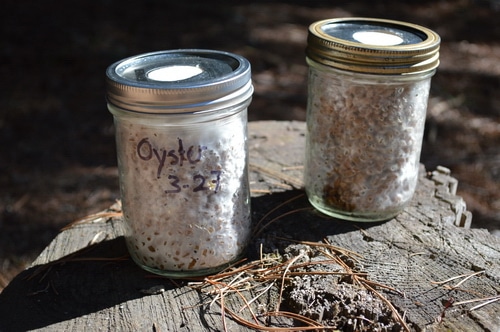
Oyster mushroom mycelium has colonized the rye grain in just 12 days. These jars are ready to expand into other media.
- Grow oyster mushrooms on waste coffee grounds and tea bags. One lb of coffee waste will give you 1 lb of mushrooms. Then feed the mushroom mycelium to your worm bin. Worms love mushroom mycelium. Or put it in your garden. Mycelium is an amazing plant fertilizer.
- Feed the chickens table scraps – you get eggs and meat.
- Feed the rabbits’ table scraps – you get meat
- Feed the pigs table scraps – you get bacon
- Feed garden waste to goats and sheep, you get milk, wool, and meat.
- Feed fresh meat, fat, and bones raw to dogs — raw food is healthier for them
For food waste that is too far gone or not appetizing
- Feed worms – you get fertilizer for your organic garden and then you can grow more food.
- Compost it – don’t send it to the landfill. You can compost everything, including meat, grains, and fat, but you may need to bury it in the soil to keep animals from invading your compost pile. You can grow more food with the finished compost.
- Render the fat scraps and make soap. (Technically soap is not food but making soap is a good use of excess fat, bacon drippings, lard, and tallow from butchering.)
Reducing food waste isn’t about scarcity, it’s about abundance. The more food we use, the more abundance we have. The more we have to share. There is enough for everyone.
What will you do in 2020 to be more intentional about reducing your food waste? Choose one new habit that will keep food waste out of the landfill. My one new habit is drying the juicer pulp instead of composting it. It’s yummy, and the right thing to do.


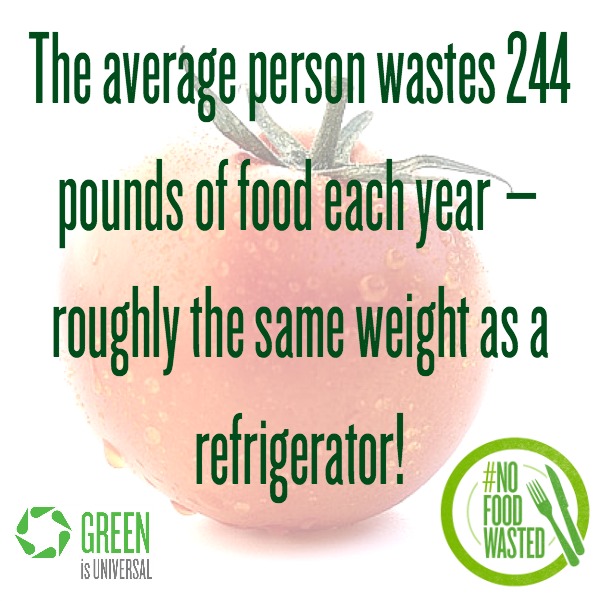
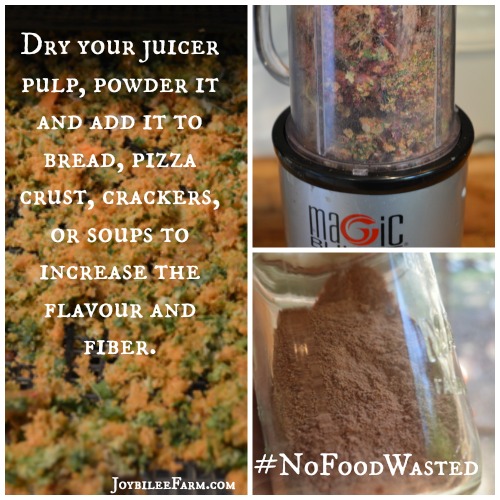

Thank you, this is very thought provoking. I have been working toward not wasting things & food. I like the idea of drying the juicer pulp. I freeze it & use it in smoothies, soup, chili, salsa, sauces, eggs, breads, muffins…
How do you filter the water? I’m thinking either steep as you would loose tea or pour water over banana in a strainer. I am always looking for ideas to help my family to live a more simple, natural and non-processed life.
Seriously good idea. I’ve never thought of banana peels. What a great idea! I always buy organic bananas, so that would be a perfect way to divert them from the compost. Thanks for that idea.
Thanks for posting! You’ve got me thinking more! Just recently, I have started freezing fruit, like grapes, strawberries, chunks of bananas, that are just a bit beyond their ripeness, Not Rotting, and we use these in fruit smoothies… Also, egg shells, can be put in oven on lowest setting overnight and ground up for the garden. Banana peels are dried and ground up (eliminates heavy metals from drinking water-google this) and put on shelf indefinitely for water filtration. So lucky to have a Ninja!
Such great tips and ideas!